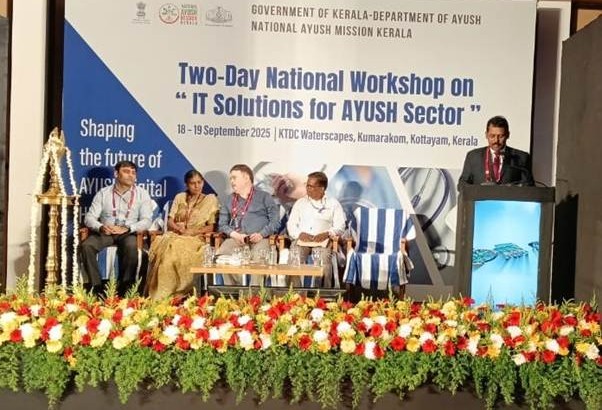Fortinet Expands FortiCloud with New Identity, Secure Storage, Communication Services for Hybrid Enterprises

With the FortiCloud portfolio now spanning secure access, application protection, and infrastructure defense, Fortinet says the platform offers centralized visibility, consistent policy enforcement, and AI-powered real-time threat protection across users, devices, applications, and data.
Bengaluru, August 12: Cybersecurity leader Fortinet has announced a significant expansion of its FortiCloud global infrastructure, introducing three new cloud-native services — FortiIdentity, FortiDrive, and FortiConnect — aimed at delivering secure identity management, protected file storage, and secure communications for modern, hybrid enterprises.
The new offerings are fully integrated into the Fortinet Security Fabric, providing security-native alternatives to point solutions that often depend on add-on protection layers. This expansion advances Fortinet’s vision of building a unified global cloud network to simplify operations, reduce vendor sprawl, and enhance productivity at scale.
Michael Xie, Founder, President, and CTO of Fortinet, said the additions mark “key milestones in our vision to build a unified global cloud network that brings enterprise-grade security directly into the way teams manage access, store, share, and communicate.”
Key Highlights of the New Services:
- FortiIdentity: Cloud-delivered identity and access management (IAM) with single sign-on, multifactor authentication, FIDO2 passkeys, and identity federation. Includes FortiPAM-as-a-Service for privileged access management with continuous zero-trust checks.
- FortiDrive: Encrypted file storage and collaboration platform with real-time co-editing, version history, role-based access controls, and compliance policy enforcement.
- FortiConnect: Unified communication tool for secure calling, messaging, meetings, and file sharing, powered by FortiGuard Labs’ AI-driven threat intelligence.
Fortinet is underpinning these services with its expanding hybrid-cloud infrastructure, including company-owned data centers in the US, Europe, Australia, and Spain, as well as more than 160 points of presence via partnerships with Google Cloud, AWS, and Digital Realty.
With the FortiCloud portfolio now spanning secure access, application protection, and infrastructure defense, Fortinet says the platform offers centralized visibility, consistent policy enforcement, and AI-powered real-time threat protection across users, devices, applications, and data.
The company’s ongoing investment in cloud infrastructure also extends to services like FortiSASE, FortiAppSec, FortiCNAPP, FortiSOC, and FortiAIOps, all accessible through the centralized FortiCloud portal.
According to Fortinet, these integrated services are designed to help organizations optimize costs, reduce operational complexity, and secure distributed environments — supporting the shift to hybrid work while maintaining enterprise-grade security.








